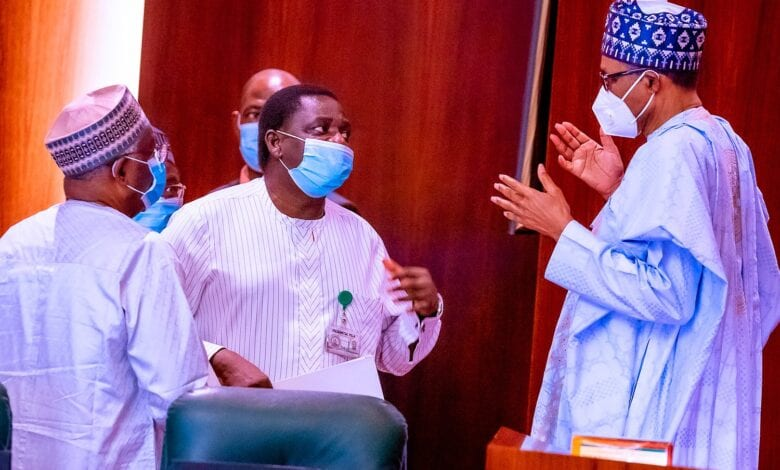By Alkali Amana
In his 4th State of the Nation address in January 2021, President George Weah reiterated his commitment to addressing and lifting Liberia’s economy by proposing several economic policies and legislative reforms. Undeniably, the focus and input towards revitalizing and sustaining a viable economy in Liberia in recent years have been at the centre of operations for a government that actively devises strategies to improve the economic situation in the country.
When President Weah and his administration took over, they positioned their efforts. They channelled immense focus on changing the narrative in Liberia and promoting a pro-poor agenda. The Weah-led administration pursued this vision through the active and conscious implementation of strategies to provide economic recovery. As early as 2019, Liberia’s Minister of Finance and Development Planning, Samuel Tweah, explained the new process of a macroeconomic framework to solve the country’s economic challenges. He maintained that it would be anchored on reducing the deficit and managing the country’s wage bill.
The wage bill at the time was disproportionately high in the West African region. Therefore, the strategy increased the effectiveness and efficiency of prioritizing the Pro-Poor development spending, ensuring transparency in fiscal data and strong governance and enhancing the fight against corruption: many years and counting, the Hon. Tweah has continued to support and implement the vision of the president. He has actively supported the administration of President Weah, playing a vital role in achieving the aim of economic recovery and sustainability through a proactive means, hence his recognition as the Africa Minister of Finance for the year 2020 by African Leadership Magazine. The award is partly due to his unrelenting efforts at seeing a sustainable economy come true for Liberia.
The first of President’s Weah’s conscious action at reviving the country’s economy came with his order of a reduction in public officials’ salary, rationalization of public spending, and cuts to unnecessary public expenditures. The Minister noted that this single policy saved Liberia a revenue of US$8.7 million annually. With this in mind, the World Bank declared that the country’s poverty reduction strategy is supported by rebuilding core functions and institutions, rehabilitating infrastructure, and facilitating growth.
In evaluating Liberia’s means of reform, an IMF news report in December 2020 noted that the country’s reform efforts have begun to bear fruit. The report, while considering the Covid19 pandemic, explained that the government’s decision to cut the bill in all three branches of government by 10 per cent in the 2019/2020 budget, while allowing the lowest-paid government employees receive the minimum wage, helped in eliminating the Central Bank financing of deficits. The policy, in effect, eased inflation and provided benefits to the poorest Liberians who mostly earn Liberian dollars in a dual currency economy. As noted by Minister Tweah, in appraising the efforts of President Weah with the current administration, the reform of the country’s wage bill to reduce fiscal pressure, control cash management better, improve the fight against corruption and public governance has helped to culminate into a severe drop in the country’s inflation rate from 30 per cent as high as more than a year ago to 14 to 12 per cent now. It shows that fiscal discipline has been introduced into the economy.
With the advent of Covid19, a dire situation was envisaged for the country, but today, relevant statistics as evidence show otherwise. Liberia’s domestic revenue from January to December 2020 proved to be 9 per cent higher than the domestic revenue generated between January to December 2019. As captured succinctly by the Minister, ‘revenue in the Covid year was higher than in a non-Covid year’. This is a testament to the country’s unique strategy aimed at providing sustainability. Also, lessons learned from the Ebola crisis enabled a prompt response from the Liberian government to tackle and handle Covid19 with a vigilant approach that has helped streamline a wave of the disease within the country. This enabled the country to keep up with its economic reforms, pushing through amid the pandemic with relevant assistance from the IMF to the tune of US$ 48.86 million under a program launched at the end of last year.
The welfare of Liberians through the revitalization of the country’s economy is a top priority for President Weah, and all hands must be on deck to achieve the objective ahead. At a recent stop in Kokoya district in Bong County, President Weah took issue with concession companies operating in the country for their failure to prioritize citizen’s interest. He threatened to replace any concession company that will not live up to its social responsibility to the people and the country. Such is the man’s drive and commitment, leading his cabinet, in ensuring Liberia’s growth and development beyond the present.
Liberia is on a sure-footing towards retooling the economy to work for all, and the Ministry of Finance anchors this under the able leadership of Hon. Tweah.
In this understanding, the resilience of the nation and the goodwill of its leadership through committed efforts are reflected in the recent award to Minister Tweah as Africa’s ‘Minister of the Year’ 2020 by the African Leadership Magazine UK.


